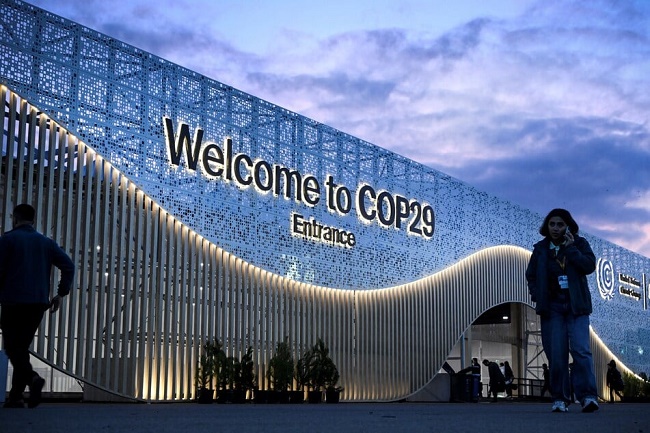At least 480 lobbyists for companies and groups that advocate for a misguided technology that prolongs fossil fuel use have gained access to the COP29 climate talks, according to a new analysis conducted by the Centre for International Environmental Law (CIEL).

The number of Carbon Capture, Utilisation, and Storage lobbyists is higher than the core delegations from the United States, Canada, the United Kingdom, and the European Union combined. Nearly half (209) are attending as members of national delegations, enabling them to lobby more directly and effectively with governments during the negotiations. The COP29 Presidency invited 55 as guests.
The number of carbon capture lobbyists has increased compared to last year’s at COP28 in Dubai (475), despite the overall number of participants being significantly lower in Baku (52,504 compared to 81,027 in Dubai. Figures exclude media and support staff).
Carbon Capture and Storage (CCS), also known as CCUS when it includes “utilisation”, is a key topic at COP29, with lobbyists advocating for its implementation as a climate solution.
CCS is a lifeline for the coal, oil, and gas industries as they pursue ways to avoid effective climate action. Worryingly, their attempts to preserve their business are showing results – increasingly national climate plans bet on these unreliable technologies.
CCS purports to enable polluters to “manage” their carbon dioxide emissions by trapping them and injecting them underground or underneath the seabed or using them in industrial processes.
But this technology has a decades-long history of overpromising and underdelivering, with 78% of large-scale projects cancelled or put on hold.
“We are witnessing fossil fuel greenwashing by those attempting to delay the inevitable fossil fuels phaseout. This large presence of lobbyists is a confirmation that the carbon capture industry is working hard to promote the misguided CCS technology. But governments and companies simply cannot ‘clean’ their coal, oil, and gas by capturing and ‘managing’ emissions: CCS has repeatedly failed to deliver,” said CIEL International Carbon Capture Campaigner, Rachel Kennerley.
“The significant number of CCS lobbyists at COP29 highlights the fossil fuel industry’s substantial investment in attempting to secure its future, despite the urgent need to phase out fossil fuels. While CCS promotion continues within the corridors and meeting rooms of the climate talks, the real impacts will be out in the real world. Investing in this expensive and unreliable technology will lock in fossil fuels and waste precious time and money that we cannot afford. Large-scale CCS transport and storage also comes with significant health and safety risks,” she added.
Many more representatives of fossil fuel companies and their supporters present in Baku may also be using COP29 to promote other carbon capture technologies such as Direct Air Capture, hoping to cover up their continued emissions.
“If left unchecked, corporate capture – as demonstrated by the volume of fossil fuel lobbyists roaming the corridors and rooms of COP29 – will continue to impede progress towards climate action. It is long past time for the UNFCCC and States to address the obvious conflict of interest of allowing those who are harming the planet to influence the process of saving it,” said CIEL Senior Attorney, Erika Lennon.
“We need to reform the climate negotiations process and make sure the voices of people on the frontlines, not the voices of polluters, are taking center stage,” she added.
The CIEL analysis was released one day after the Kick Big Polluters Out Coalition reported that 1,773 fossil fuel lobbyists gained access to this year’s climate talks.
